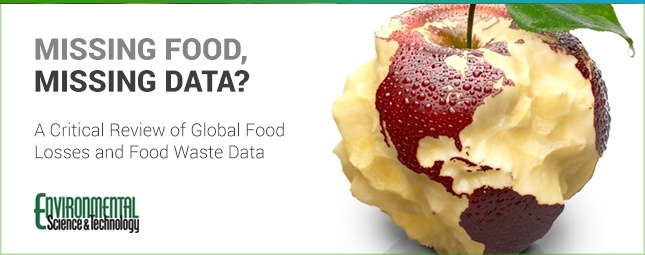Solving Global Food Waste? Start With Good Data.

“Missing Food, Missing Data” report suggests we have a long way to go in good data collection.
Awareness of the scale of the global food waste problem has been on the rise in recent years, which is a good thing, as most estimates of the amount of food lost or wasted annually without being consumed by humans range from 30% to 50% of total production. That’s neither acceptable nor sustainable.
The United Nations has addressed this problem through Sustainable Development Goal 12.3, which calls for a 50% cut in per capita food waste at the retail and consumer levels. This is a worthy goal, as food waste carries deep externalities in terms of lost nutrition, wasted resource inputs, soil depletion, water pollution, and air pollution through greenhouse gas emissions as food decays in landfills. Stunningly, the Food and Agriculture Organization (FAO) reports that if ranked as a country, food waste would be the third largest emitter of greenhouse gas emissions.
So, when considering food waste – a problem clearly at the heart of the global challenge of sustainably feeding more than 9 billion citizens by 2050 – one would expect an abundance of primary research for analysis. Not so, however. A new report in Environmental Science & Technology suggests that despite the gravity of the food loss and waste (FLW) problem, we lack sufficient primary research on the topic to properly address it. The report, Missing Food, Missing Data? A Critical Review of Global Food Losses and Food Waste Data, reflects the work of a team of authors who reviewed more than 200 publications from 84 countries over the period from 1933 to 2014.
The team points out several major shortcomings regarding existing food loss and waste data, including:
- Narrow spatial coverage – most studies focus on industrialized countries versus developing world countries
- Unbalanced supply chain focus – many studies focus on the retail/consumer sectors, while fewer focus on postharvest loss
- Some data sources are outdated
- Inadequate first-hand data, and reliance on data derived from literature
- Difficulty in systematic comparison and verification of FLW data due to variation in boundaries, methods, and definitions
The team notes that a “good and clear understanding of the availability and quality of global FLW data” is critical for gauging progress toward SDG 12.3, and for raising awareness and prioritizing prevention and reduction strategies. Better data would also allow better comparisons across multiple levels (countries, food supply chains, and commodities) and provide the basis for additional research on the social, financial, and environmental costs of global food loss and waste.
In short, the report highlights what we at LeanPath firmly believe – good data drives good decisions. And as we all know, what we measure, we manage. The scale of the global food waste problem is vast, and systemic solutions are urgently needed – especially in the area of upfront prevention (source reduction) where we focus at LeanPath. Enabling and coordinating more primary research on global food loss and waste is essential, not only to assess and apply solutions, but to measure the effectiveness of them.
The authors conclude that “more consistent, in-depth, and primary-data-based studies” are critically needed (especially in developing countries) to guide policy measures on FLW reduction and environmental mitigation efforts. They suggest several areas for further study, including:
- Standardizing systems and methodologies for food loss and waste quantification
- The need for more data based on direct measurement
- More attention to FLW in studies beyond the U.S. and Europe
- More data analysis at different parts of the food supply chain
- Development of consistent databases
- Translation of data to action on social, financial, and environmental levels
We commend the authors (Li Xue, et al.) for such an important, comprehensive work with a measurement focus. At LeanPath, we have long been engaged in data tracking and analysis – for 13 years and counting. Our operations are firmly grounded in our belief that sound data should drive decisions. And we believe that there is no more important problem in need of a data-driven, measurement-focused approach than that of global food loss and waste. From our work in more than 20 countries around the globe, we know that good data is the basis for leading operational change. The data that we provide through our industry-leading integrated hardware and software solutions allows our clients to see, analyze, and act on their food waste data – engaging employees, reducing costs, and reducing environmental harm.
We’re already “missing” far too much food across the globe. If we’re “missing good data” to initially measure how much loss and waste is occurring, and where and why, then we’re going to be ineffective at finding it and generating sustainable solutions – and that’s a cost the world cannot afford.
